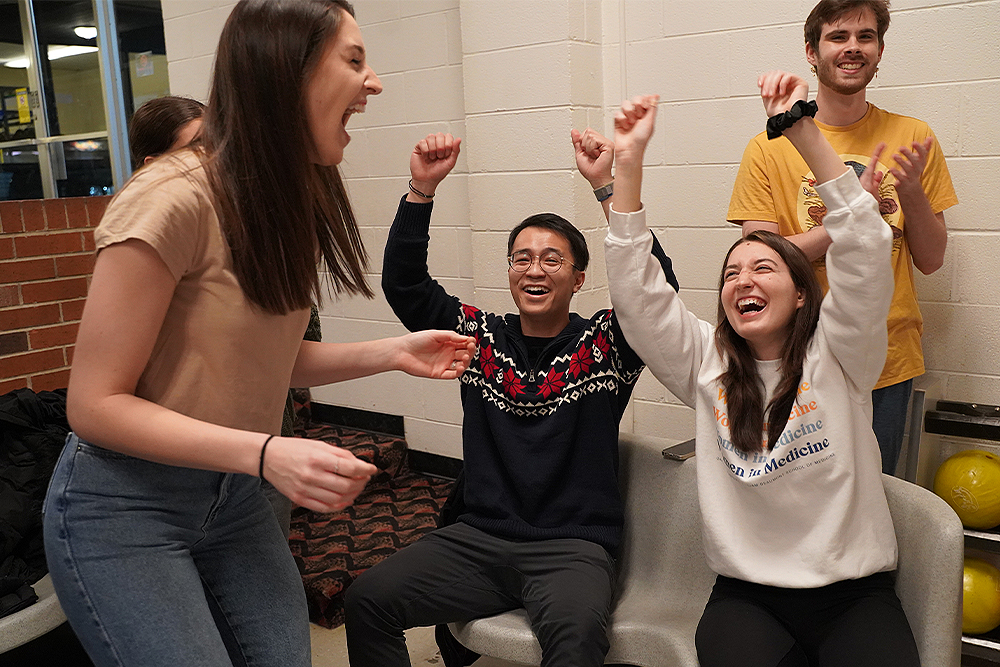
A recent presentation hosted by OUWB’s Center for Excellence in Medical Education discussed a topic that many take for granted when dealing with stress: laughter.
“Laughter as a Friend,” was presented by Terry Dibble, OU SHS Special Instructor Coordinator of Practicums and Internships.
Dibble said the goals were straightforward: to show how laughter serves as “an intervention for relieving stress.”
“Think about the last time you had a good laugh,” Dibble told the audience. “What was going on at that time? Who were you with? What was happening? What’s the situation? And, whatever that was, as long as it wasn’t dangerous, try to bring those things back into your life.”
 |
| Dibble |
Dibble explained that laughter can stimulate organs, relieve the stress response and tension, and relax the body and brain. Laughter can also have long-term benefits. He said it’s been shown that laughter can improve the immune system, relieve pain, increase personal satisfaction, and improve mood.
“What we can do is if we're not in a laughing mood, is we can kind of force ourselves into a laughing mood,” said Dibble.
He also showed a video at the beginning of the presentation with a chain of individuals laughing. It started with a video of a baby laughing, and then an adult in the next scene laughing because of the baby video. The same chain continued and ended on a young woman doubled down in laughter. Another man in the video, Doug Collins, was found to have the “world’s most contagious laugh,” which was the result of him starting to laugh at himself for the way he laughs.
Towards his presentation, Dibble offered advice for incorporating more laughter in our day-to-day lives. One idea: to be more “playful” at home and at work.
“Learning to become more playful can help develop your sense of humor.” Dibble said. “What are the obstacles in the way of you behaving more playful?”
The session was one of the many presentations that OUWB CEME hosts to promote a more positive work environment for faculty. OUWB CEME Director Ann Voorheis-Sargent, Ph.D., said the presentations were started to help build better mental health in the workplace, especially during the COVID-19 pandemic.
She said that OUWB has worked with Dibble previously.
“Since Covid, we know mental health has been a big issue.” Voorheis-Sargent explained. “We know there has been things like quiet quitting and job hopping. As a result, I’ve been trying to find different sessions to offer on managing conflict, enjoying your job, (and) stress management.”
She also hoped faculty can use these skills with students.
“It’s the wintertime, and it’s a hard time of year. You feel kind of gloomy,” said Voorheis-Sargent. “The days are dark. If we can develop tools that will help us work with students, the hope is that it will be beneficial.”
To request an interview, visit the OUWB Communications & Marketing webpage.
This work is licensed under a Creative Commons Attribution-NonCommercial 4.0 International License.

